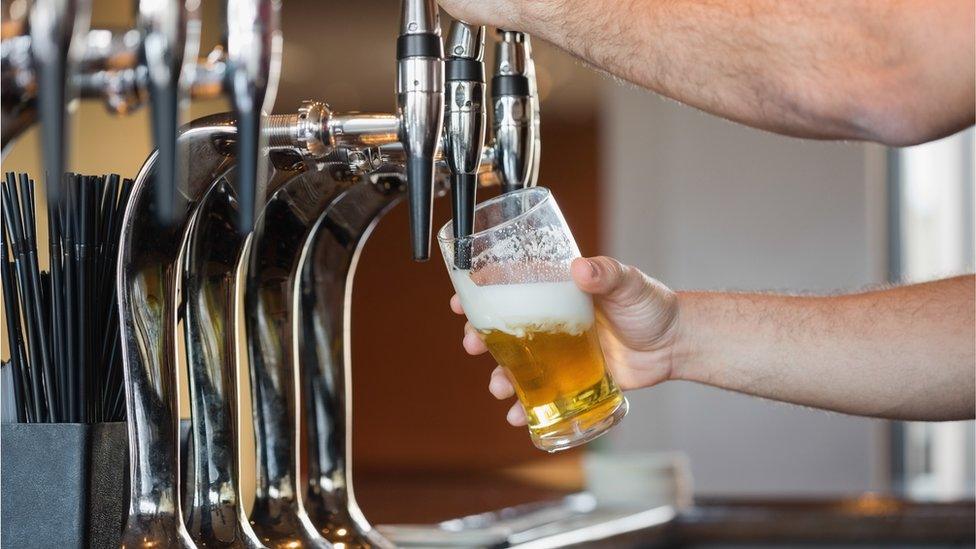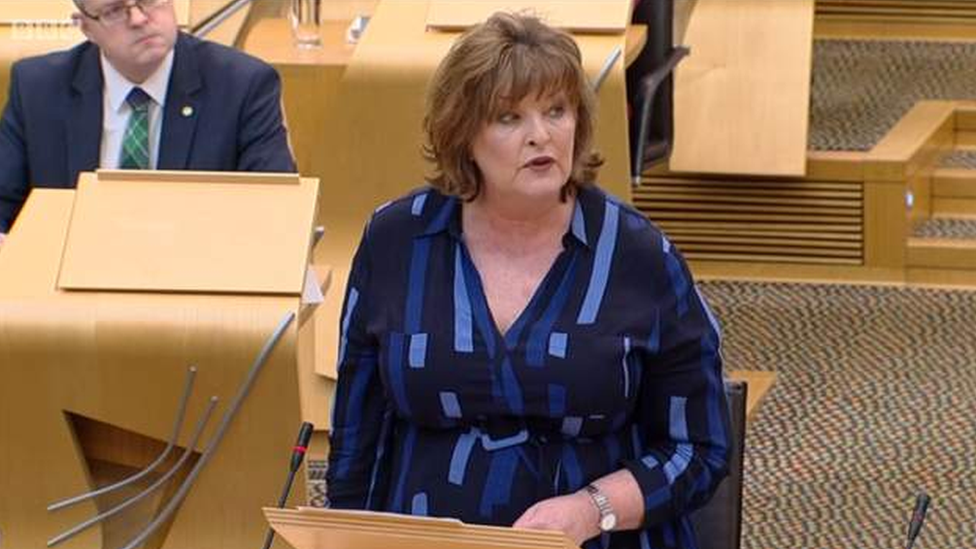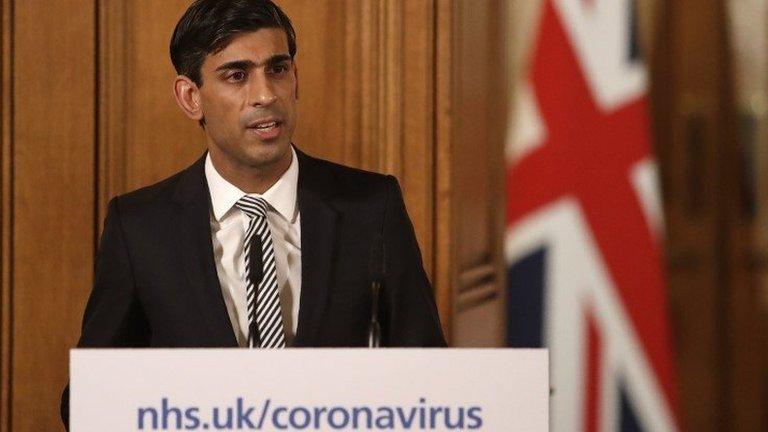Coronavirus: Scottish government vows to back businesses during outbreak
- Published
- comments

Pubs across the country have been hit hard by the impact of Covid-19
The Scottish government has pledged to replicate measures announced by the UK government to support business during the coronavirus outbreak.
Economy Secretary Fiona Hyslop said it will offer loans to businesses as part of the measures announced by the chancellor on Tuesday.
Her statement to MSPs came amid calls for rapid financial aid for employers in the wake of the pandemic.
Tracy Black, director of CBI Scotland, said the speed of support was key.
Speaking on BBC's Good Morning Scotland programme she urged everyone to work together to protect livelihoods.
Colin Borland of FSB Scotland also stressed the need for urgent action as developments had moved at "grease lightening" pace.
Under the new plans:
Small and rural businesses will be able to apply for a £10,000 grant.
Hospitality businesses will be given 12 months of business rates relief.
Those with a rateable value of between £18,000 and £51,000 will be able to apply for a £25,000 grant.
Ms Hyslop also called on the chancellor to do more to help companies rather than offering loans, claiming "debt is still debt".
She added: "We need an agreed economic framework in place with the UK government."
Alluding to the financial crash of 2008, the economy secretary said: "We must think beyond that last crisis, this is potentially of greater order of magnitude and a different type of shock."

Economy Secretary Fiona Hyslop told MSPs the scale of the crisis could see the global economy shrink by 5% over a three-month period
Ms Hyslop also reiterated her calls for more grant support, tax breaks and a "greater emphasis on individuals and households".
Measures which would reduce cost pressures on businesses include tax holidays through PAYE, VAT reduction and the suspension of the apprenticeship levy.
In response to questions from Scottish Labour and the Greens, she acknowledged more needs to be done to help the self-employed, freelancers and those on contracts.
The minister said some of those issues would be dealt with through the hardship fund and additional information will be announced on Thursday.
Ms Hyslop also warned MSPs the scale of the crisis could see the global economy shrink by 5% over a three-month period.
Earlier, Ms Black told Good Morning Scotland: "I think what is absolutely vital is that help is delivered quickly.
"Simplicity is the absolute key to this. Businesses need to know how to access that help and where to go for advice."
She added that the most urgent matter was wages and said many firms have had no choice but to reduce staff hours.
The CBI Scotland director said the preservation of businesses was vital to ensure the country was in a position to recover.
She said: "If we want tourists to come back here we need to make sure that there is hotels, pubs, festivals going on and we have the economy to attract that business back.
"It is critical that everybody works together to protect livelihoods and protect jobs and make sure that we do have an economy once this crisis passes."

People across the world have been taking precautions against the virus, including some in Edinburgh
Mr Borland, director of devolved nations for FSB Scotland, described the need of businesses as "immediate".
He said some employers had told him they only had enough cash flow until the weekend while others expected to run out in a couple of weeks.
And he said many were losing sleep thinking about how they could keep staff on.
He added: "The really important thing about this package is that it gets to people who need it now.
"We can't be tied up in red tape or going through extra bureaucratic hoops to make sure people get the money they require."
'Dystopian'
Meanwhile, Great British Bake Off semi-finalist Flora Shedden has called for greater clarity from the UK government for small businesses affected by the outbreak.
Ms Shedden, who owns a bakery and coffee shop in Dunkeld, said a three-month lockdown "as predicted" would "ultimately cause bankruptcy for us."
Posting on Instagram, she said: "As a small business, taking out another loan during this time of uncertainty is not a viable option for us."
She said the £10,000 grant her business was eligible for was unlikely to be processed in time for this month's payroll "when it really counts" and would only cover five weeks' pay.
Colin Beattie, owner of the Oran Mor bar and nightclub in Glasgow, described the impact of coronavirus as "absolutely dystopian".
He added: "You could not make it up. We are all very dispirited."
- Published17 March 2020
